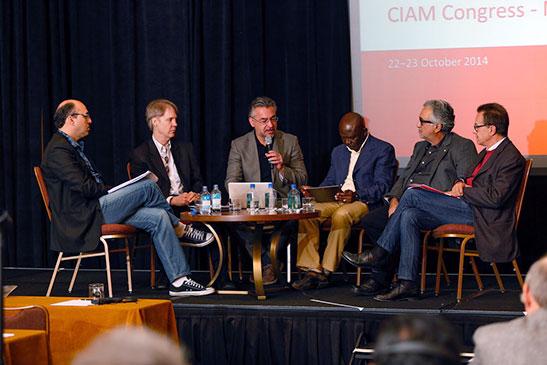
CIAM Congress Meets in Nashville to Discuss Music Copyright in the Digital Age
On October 22 – 23, the International Council of Creators of Music (CIAM) met in Nashville, USA to address key topics of relevance to music creators today.
It successfully captured the need to create a united front to tackle the copyright issues affecting music creators globally. More than 60 worldwide creators, representatives of collective management organisations and experts attended the event, including two United States congressmen (Marsha Blackburn and Jim Cooper) making it the biggest CIAM Congress organised to date. Eric Baptiste, CISAC’s Chairperson of the Board of Directors and Gadi Oron, Director General of CISAC, opened the Congress with welcome speeches.
The first day of the Congress opened with a panel discussion, moderated by Lorenzo Ferrero, Chair of CIAM, in which the Chairs of music alliances worldwide (Sam MBendé for PACSA, Juca Novaes for ALCAM, Alfons Karabuda for ECSA, and Eddie Schwartz and Rick Carnes for MCNA) updated the audience on initiatives in their regions.
Karyn T. Claggett of the US Copyright Office gave a keynote speech on US copyright, with professor Daniel Gervais, of Vanderbilt Law School, following on with a keynote address on US Copyright in international context.
With a specific focus on North American issues at the meeting, the ramifications of “Work for Hire” for audiovisual creators in the US and Canada was also explored in a final panel discussion.
The second day provided an opportunity to review worldwide projects, with a focus on how metadata can empower creators in making sure that the royalties that they are entitled too for the use of their music anywhere in the world can flow seamlessly across the network of collective management organisations.
Discussion then moved to the Fair Trade Music Project, a concept inspired by the successful Fair Trade Coffee movement aimed at ensuring music producers adhere to fair compensation and transparency standards for all music creators.
Pierre-E Lalonde, author of the study, presented its key findings and propositions, and the Congress ended with the vote on the resolution on the Fair Trade Music project, which received unanimous approval from the CIAM Congress.
